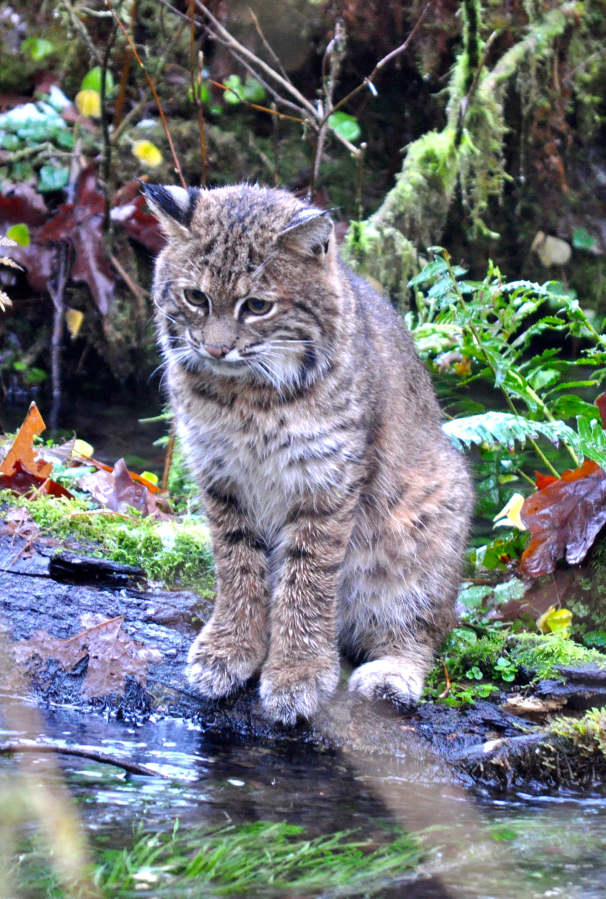Lee Snook might consider adding a couple of things to her National Park Service job description.
Viral videographer, of course, but maybe custodian of quiet, as well.
We recently caught up with the Columbia River High School graduate for the story behind her video of a bobcat snatching a salmon from a creek.
Her official title is chief of interpretation and education at Olympic National Park, one of America’s natural treasures. She shot the video — which has more than a million views — in the park’s Hoh Rain Forest, which has a distinction of its own.
One square inch in the Hoh Rain Forest has been called the quietest spot in the United States. That was determined a few years ago by acoustic ecologist Gordon Hempton. (The skies over the area don’t get a lot of air traffic, which helps. Information, including hiking directions to the spot, is at onesquareinch.org.)
The rain forest is so quiet that you can hear a fish swim. … although they can be noisier than you might expect, Shook explained. She said she walked over to Taft Creek, a tributary of the Hoh River, when she heard the sound of salmon.
“They’re struggling to get upstream: You hear them flopping in the water,” said Snook, who graduated from Columbia River in 1988 and Clark College in 1992.
In an email follow-up, Snook noted that the “quietest spot” designation gives members of the park’s interpretive staff a handy talking point.
They “talk about it with the public and promote it as one of the benefits of being designated a wilderness area.”
“There are special land management rules that go with wilderness that help preserve the wild, including soundscape. Often visitors don’t think of that part of wilderness,” Snook said.
Another important — but often-missed — quality of wilderness is the dark skies. Darkness is an important aspect to the ecosystem that keeps things in balance, she said.
“Many animals need the dark to survive, like our bobcat friend. We try to stress the importance of all aspects of a wilderness working in concert with each other, including humans’ presence and impact.”
Off Beat lets members of The Columbian news team step back from our newspaper beats to write the story behind the story, fill in the story or just tell a story.




